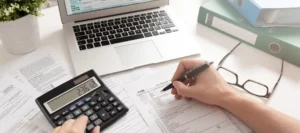
Power of Attorney in Ontario: do I need one?
On August 5th, 2022 a devastating car crash left actress Anne Heche in a coma with a severe brain injury. With little to no expectation of survival, her family chose to turn off her life support and have her organs donated. Anne’s relatives state, “it has long been her choice to donate her organs”, and they were going to follow through with her wishes.
Understandably, taking such actions for a loved one is extremely difficult. However, some peace of mind can be attained knowing that you are executing someone’s final wishes.
Unfortunately, it is far too often that incapacitating brain injuries and similar medical emergencies happen where the incapacitated individual’s family and friends find themselves in a position where they do not know what their loved one’s end-of-life wishes would have been.
As a result, any decisions for the person are incredibly difficult to make. However, they can be made with the help of a Power of Attorney. It’s important to have a discussion about a Power of Attorney prior to it being needed. That way, everyone knows what to expect and can ensure that the person’s wishes are respected.
- What Is A Power Of Attorney?
- What Is A Power of Attorney for Personal Care?
- What Is A Power of Attorney For Property?
- Who Can Make a Power Of Attorney?
- Who Should Be My Attorney?
- Why Should I Have A Power Of Attorney?
- Are There Any Limits For My Attorney’s Powers?
- Power of Attorney Abuse and Fraud
- What Are the Requirements?
- What Should I Do With It After it is Signed?
- Power of Attorney Between Provinces
- Do I Need A Lawyer To Make A Power Of Attorney?
What Is A Power Of Attorney?
A Power of Attorney is a legal document that gives someone authority of making decisions on your behalf. In Ontario, there are two main types of Power of Attorney: the Power of Attorney for Personal Care and the Power of Attorney for Property.
What Is A Power of Attorney for Personal Care?
A Power of Attorney for Personal Care gives your attorney the authority to make decisions about your health. Personal care decisions may include but are not limited to, medical treatments, housing, meals, hygiene, safety, and other healthcare-related concerns. The attorney will also have the duty of communicating your medical wishes to the health care professionals, which can include life support, pain relief, blood transfusion, etc.
To performs their duties successfully, your attorney for personal care will have to keep a list of all the health care decisions they made with the reasons for each, keep copies of medical reports, and keep the descriptions of all your wishes regarding personal care.
The Power of Attorney for Personal Care comes into effect only if you become mentally incapacitated to make your own decisions. This document is created in advance of this unfortunate possibility, no matter how remote or unlikely the possibility may appear to be.
What Is A Power of Attorney For Property?
A Continuing Power of Attorney for Property allows your designated attorney to make decisions regarding your finances, property and real estate in the case you become mentally incapable to do so by yourself. On your behalf, the attorney may help with banking, managing your investments, financial affairs, paying your bills, signing cheques in your name, and even buying and selling property.
The attorney, however, will not become the new owner of any of your property, accounts, or money. They will solely have the authority to manage it for you.
Who Can Make a Power Of Attorney?
There are a few criteria you must meet to be able to make a Power of Attorney in Ontario:
- You must be 18 years old or older for the Power of Attorney for Property
- You must be 16 years old or older for the Power of Attorney for Personal Care
- You must be mentally capable:
-
- You are aware of what property you possess and its worth
- You understand who your dependents are if any, and your obligations to them
- You understand what powers you are giving your attorney
- You know the Power of Attorney can be revoked
- You understand the attorney may misuse their power
Who Should Be My Attorney?
Choosing an attorney can be a difficult task. The attorney’s job will be demanding, and they will often be forced to make difficult decisions.
There are many factors that should be considered when choosing an attorney, whether it is for your personal care or for handling your property.
It is important to remember that the closest or nicest family member or friend is not always the best choice. Instead, you should choose someone trustworthy who has integrity and possess good judgment. An attorney who acts in a selfish or incompetent manner may cause much harm to your personal well-being or your estate.
Choosing an Attorney for Personal Care
Generally, an Attorney for Personal Care is someone who is familiar with your personal care or health care wishes and will follow through with these preferences. For example, if you do not wish to undergo a specific treatment or would not like to be kept on life support, you should let your attorney know in advance and be sure that they are aware of these wishes.
Talking to your attorney about the decisions they may have to make on your behalf is essential to ensure they know how to act in your best interests.
Choosing an Attorney for Property
Similarly, an attorney for property should be an individual who thinks in the same way as you or knows your preferences in relation to your property and financial matters.
Preferably, an attorney for property should also have some knowledge about managing finances and handling documents, be skilled at keeping records, has the ability to control bank accounts and investments, and be willing to hire professionals such as accountants and lawyers.
Other Requirements
To be your attorney, an individual must be mentally capable and be over the age of 16.
Additionally, an attorney for personal care cannot be someone who provides you with any healthcare or residential, social, or other support services for compensation, unless this person is also your spouse or relative.
Other than what has been outlined above, there are no additional legal requirements. You may designate an attorney to be:
- Your spouse;
- A family member;
- A close friend; or
- A trust company.
For convenience, it is best for your attorney to be a resident of the province in which you reside as the attorney should have the ability to respond quickly to urgent matters and ensure you and your property are being properly cared for.
You may also name one person to act as both the Power of Attorney for Property and the Power of Attorney Personal Care, and you may have more than one attorney for each.
Alternative Attorney
You should always designate a substitute or alternative attorney in your Power of Attorney document. This is done in case the first attorney has become mentally incapacitated or has passed away after the document was signed, or is not willing to take on the responsibilities of being your attorney.
However, you should never be pressured into naming someone to act as your attorney. If you are uncomfortable about giving someone the authority to become your attorney or do not know whom to choose, see a lawyer who can help you understand your options and guide you in your decision.
Why Should I Have A Power Of Attorney? What Happens If I Don’t?
Power of Attorney for Personal Care
It is a common belief that a Power of Attorney for Personal Care is only for the elderly or those who have severe medical issues and are contemplating the end of life care. However, a Power of Attorney is part estate planning and is beneficial for all people, regardless of their age or health status, as it protects individuals in the event that they get incapacitated to make personal decisions. It is essential to have a Power of Attorney even as a healthy individual because it ensures that you will have someone acting in your best interests and will follow your wishes if you are ever in a car accident or face any other medical emergency that will leave you unable to consent to health care treatments.
In Ontario, if you do not have an attorney designated to make personal care decisions on your behalf and you become mentally incapable, the Health Care Consent Act establishes some rules that outline who can make such decisions for you. This Act states that a substitute decision maker, usually a close family member, would be allowed to make some health care decisions. These include only decisions regarding the administration of treatment, admission to a long-term care facility, and personal assistance services.
If you do not have a Power of Attorney, the process of obtaining consent for the following decisions is long and inconvenient. The doctor administrating the treatment would follow a list of people from whom they would get consent. The doctor will first attempt to get consent from your representative appointed by the Consent and Capacity Board (anyone can apply to be a representative for you), then a spouse, parents, a child, a sibling, another relative, or a trustee from the Office of Public Guardian and Trustee, in this order.
If the doctor cannot find a person on the list or the person is unwilling to make the decision, the doctor moves to the next person on the list to make the decision on your behalf.
It is not always in your best interest to have a person on the list to make decisions for you. The individual may not be trustworthy or may act against your interest. If you would prefer someone other than the people on this list to be your substitute decision-maker, you should consider making a Power of Attorney for Personal Care.
Power of Attorney for Property
Unlike personal care decisions, there is no law in Ontario that automatically allows a family member the authority to manage your property and finances in the event you are unable to do so.
On the contrary, specific legal authority is required for anyone to manage your financial matters. If you do not have a Power of Attorney for Property, the court must give permission to your representative to handle your property and money. Anyone may apply to the court to become a representative.
If no one applies or the court decides it is not in your best interests for the applicant to be your representative, the court or Ontario’s Office of the Public Guardian and Trustee may appoint a representative on your behalf. In this case, the court or the Office of the Public Guardian and Trustee will choose a person whom they believe is qualified to be your guardian and this person may not necessarily be the person whom you would have chosen.
A public-appointed guardian will act in the way they see fit, which may not necessarily be the way you would like your property to be handled. The public guardian will also not know your wishes if you cannot communicate them. So, it is best to designate someone you know and trusts to be your Power of Attorney for Property instead of risking a public guardian managing your affairs.
Are There Any Limits For My Attorney’s Powers?
An attorney has the power to act on your behalf in relation to every decision that you would be able to make if you were capable, except:
- Make or alter your Will
- Make or alter the name of a beneficiary on insurance policies, RRSPs, etc.
- Make a new or change your Power of Attorney
You may also add personal limitations in your Power of Attorney document which would restrict your attorney from performing certain acts.
Power of Attorney Abuse and Fraud
Being someone’s attorney comes with immense power and responsibility. Unfortunately, this power is often abused by malicious attorneys. The abuse of power may result in severe harm to the grantor that is being taken advantage of.
Fraud and abuse generally arise with the Power of Attorney for Property and frequently occur when the grantor is elderly, ill, or in an overall state of vulnerability. The sad reality is that these vulnerable individuals do not have the mental capacity to understand that they are the victims of fraud and abuse, and do not know how to ensure these situations do not happen or continue.
Types of Power of Attorney Fraud
Fraud can start prior to the signing of the Power of Attorney documents. For example, the Power of Attorney may be obtained through coercion and undue influence. It is also possible for attorneys to forge documents.
The Power of Attorney may also be abused even when an attorney is validly given the powers and both parties sign the documents in good faith. Examples of fraud may include the attorney draining the bank accounts of the grantor for personal use, transferring ownership of the property to unauthorized individuals, misappropriating assets, undergoing unauthorized selling of the grantor’s property, making inappropriate investments, enduing unnecessary expenses, and generally acting for their personal benefit to the financial detriment of the grantor.
Power of Attorney Fraud is a Criminal Offense
Power of Attorney fraud is one of the most common forms of elderly abuse in Canada. As a result, the Criminal Code makes it a crime to commit fraudulent acts, theft, and the forgery of documents in relation to the Power of Attorney (Criminal Code Section 331). Courts have continuously convicted and imprisoned people who have been found to have taken advantage of the elderly for personal financial gain through a Power of Attorney.
For example, in an Ontario court decision, the son of an 89-year-old woman used his powers as her attorney for property to take out several mortgages in his mother’s name to cover his own home mortgage and costs. His actions resulted in his mother having the bank seize her assets, lose all her additional savings and her car, and be evicted from her home. Ultimately, the court sentenced the son to 10 years imprisonment (R v. Kaziuk).
Another case that also led to a conviction is called R v. Hoover. In this case, the accused knew an elderly couple since he was a young child. As years went by, the elderly man developed dementia, and the couple named the accused as their Power of Attorney and residual beneficiary of their Wills.
The accused visited them often in the care facility and took care of the elderly man’s daily needs. When the elderly man’s wife passed, the accused became the attorney and took control of the man’s property. Over the course of 7 years, the accused did not visit the man, did not provide any care, and did not pay for the long-term care facility. He also depleted all the assets; nearly $400,000. The courts convicted him for 2 years and ordered the return of the money he fraudulently transferred. The accused’s argument of his belief that he had the authority to use the money for personal benefit was not accepted.
Steps to Take to Avoid Power of Attorney Fraud
- Appoint a person whom you trust to be your attorney. A family member or close friend is not always the best person to make your attorney.
- Define and limit your attorney’s powers in a clear manner in the Power of Attorney document.
- Be aware of the signs of Power of Attorney fraud and abuse. This may include the attorney isolating the grantor from family and friends, not informing the grantor or their family of transactions, being unwilling to provide records or documentation, transferring large amounts of funds to and from the grantor’s accounts, increasing investment activity, etc.
- Do not alert your attorney if you suspect them of commuting fraud.
- Talk to a lawyer. The lawyer will be able to determine the validity of the existing Power of Attorney and may be able to revoke it to prevent damage.
- Create your Power of Attorney with a lawyer in the event you ever become mentally incapacitated, even if you believe this will never occur.
What Are the Requirements For a Valid Power of Attorney?
To be valid in Ontario, a Power of Attorney document must meet some criteria:
- The Power of Attorney document is stored as a printed, physical copy, not in an online location
- The document was signed in the presence of two valid witnesses who also signed to confirm they witnessed your signature
- The signatures of the witnesses were in ink and at the end of each document, not digitally signed
Some individuals are not allowed to be your witnesses including your spouse or child, and anyone under 18 years of age.
Virtual witnessing
Due to the Covid pandemic, in 2021 the laws were altered to allow for virtual or remote witnessing and commissioning of the Power of Attorney documents. As a result, you may have your documents witnessed over audio-video technology. Despite this change, the signatures must be on paper and the documents cannot be signed digitally.
What Should I Do With My Power of Attorney After it is Signed?
There are no further requirements after you have signed and witnessed the Power of Attorney. You should store the original document in a safe place and give a copy to the people you designated as your attorneys.
Power of Attorney Between Provinces
Due to the way the laws in different provinces are structured, a Power of Attorney in one province may not be recognizable or enforceable in another, unless the province established legislation allowing for extra-provincial recognition.
In Ontario, for example, documents that may be valid outside Ontario will still be valid if the documents comply with the laws of the province in which they were signed (Substitute Decision Act). In contrast, for an Ontario Power of Attorney document to be valid in Manitoba, the document needs to be valid in Ontario and must contain the phrase “it is to continue despite the mental incompetence of the donor after the execution of the document” (The Powers of Attorney Act).
These are important factors to keep in mind if you have created a Power of Attorney in one province and are moving, or own assets in another province.
Do I Need A Lawyer To Make A Power Of Attorney?
Legally, you are not required to hire a lawyer to draft your Power of Attorney. However, Powers of Attorney can be complicated documents that may involve a significant amount of technical and legal terminology that may be confusing for those who do not deal with these matters often. If the Powers of Attorneys are not prepared properly, they may not be considered valid.
Due to the importance of this document, it is beneficial to consult a lawyer who can provide legal advice and help guide you through the process and draft a Powers of Attorney for you in accordance with your province’s laws and your personal wishes. These documents are relatively inexpensive and are worth having a professional help you with.
While it may be difficult to start the conversation about the Power of Attorneys, having one in your possession will ultimately bring you peace and certainty for knowing that you will be cared for, and your property will be properly managed in case of an unfortunate or unforeseeable event.
If you require a Power Of Attorney, get in touch with us at Beffa Law and we will be able to help. At Beffa Law we are serving business customers in Oakville, Burlington, Milton, Mississauga, and other areas west of the GTA. We offer assistance in estate planning along with other practice areas. Call us at 647-812-8462 , email us at info@beffalaw.ca or set up an appointment.
Discover More







